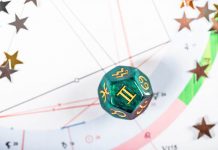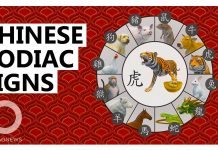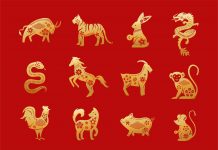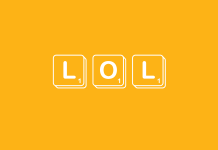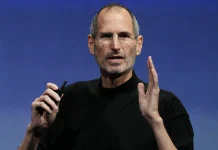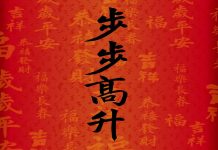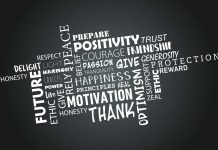Choosing a book to read is never easy, especially if we are talking about personal growth books. There are books that catch your attention and you end up spending hours and hours on the bookshelves reading the back of the covers or in online e-commerce between reviews.
And if you are looking for a new genre that manages to intrigue you, the choice becomes complicated and indecision increases.
The classic motivational, although dated, remain incredibly timeless. Society evolves, progress advances and people’s habits change; yet personal growth books continue to motivate and inspire millions of people as if all the changes that have occurred since their publication were irrelevant. There is a precise and very simple reason why this happens: the motivational classics are not about the outside world. These are books that focus on the individual, and man, with his complex but wonderful inner world, does not change, since human nature cannot change; has been, is and will always be the same.
But why then do some (fortunately few!) Criticize motivational books ? I believe that the criticisms arise from an erroneous and prejudicial interpretation of the purposes of these works: the belief that they purport to tell someone else how they should live their life. In reality, the authors of the motivational classics never set themselves up as masters.
On the other hand, it is right that everyone remains a master of himself. Personal growth books quite simply provide food for thought, advice and strategies to improve your life. Then it is up to each of us to put into practice what we have read, comparing the contents of the books to our personal experience. No book can work miracles by itself. It is not enough to read motivational classic to change your condition instantly. It is necessary to commit to accepting suggestions in one’s daily life by taking concrete and effective actions.
Personal growth is a path (often tortuous) and the achievement of success is an (immense) achievement. Now I’m revealing a fundamental method to start getting the improvements you want, a method you can take advantage of right away: read the following 52 motivational classics.

Table of Contents
The 10 must-have self improvement books
1. How to Treat Others and Make Friends – Dale Carnegie. It was my first personal growth book ever: read at 18 after receiving it as a gift from an entrepreneur during an internship. The more the years pass, the more it remains current. To read.
2. The 7 Rules to Succeed – Stephen R. Covey. I don’t remember if it was the second or third manual I read on the subject, let’s say that it went very well for me anyway, because Covey’s book is another pillar for all training enthusiasts.
3. The slight edge – Jeff Olson. This book, is undoubtedly my favorite personal development book of the last 5 years. I would be lying if I said that his philosophy of small daily actions did not influence my (per) annual course # 365 – An Epic Year.
4. Think and enrich yourself – Napoleon Hill. Hill was a somewhat controversial author and honestly I don’t feel like marrying every single page of “Think and grow rich” (original title in English), but it still remains one of the cornerstones of personal development and you have to read it, even if only for understand how dozens of other texts on the same trend were born.
5. Psychocybernetics – Maxwell Maltz. Written in 1960 by the cosmetic surgeon Maltz, the book is partly outdated (eg habits that can be formed in 21 days, etc.), but I recommend reading it to anyone approaching the world of training.
6. Highway to Wealth – MJ DeMarco. The best book on financial growth in recent years. Point.
7. The monk who sold his Ferrari – Robin Sharma. I fear that if I read Sharma’s best-seller today I would be terribly disappointed, yet it remains one of my top 5 personal growth books and I couldn’t not include it in this category.
8. The Way of the Peace Warrior – Dan Millman. Definitely not a “technical” manual, but I feel I can recommend it to anyone looking for inspiration in this period.
9. The Power of Now – Eckhart Tolle. Guru? Maybe, the fact is that I still remember how I felt after reading “The power of now” and it was a good feeling.
10. 4 hours a week – Tim Ferriss. If it hadn’t been for Ferriss’s book, Gurulex probably wouldn’t have even been born; so although the Italian translation is bad (and the English version is not written much better), despite the 11 years from the date of publication you begin to feel, “4-hour work week” is a book that must be read.

Recommended books of psychology
It is useless to deny the close link that exists between personal growth and psychology. Here are the texts of some of the best known psychologists and psychotherapists that I want to include in this article.
11. How to Stop Mind Jerking and Enjoy Life – Julius Caesar Jacob. Unmissable!
12. In search of lost cuddles – Julius Caesar Jacob. Another booklet by the Genoese psychotherapist that anyone should read.
13. Fear is a mental saw – Julius Caesar Jacob. I close the GCG trio of books with this text dedicated to fear: one of the worst enemies of our personal growth.
14. Emotional Intelligence – Daniel Goleman. I must confess that I am not a great lover of Goleman, but there are at least 3-4 million people to whom I would like to recommend this book of his!
15. Psychosolutions – Giorgio Nardone. Anyone who has been following me for several years knows how much I appreciate Prof. Nardone. This and the next are two of his texts that could not be missing in my list of recommended books.
16. Psychotrap – Giorgio Nardone. To be read in tandem with the previous one.
17. I resist therefore I am – Pietro Trabucchi. When I hear some show-stoppers talking about resilience, I imagine Trabucchi putting his hands in his hair. Read this book and find out what true resilience is.
18. Persevering is human – Pietro Trabucchi. An excellent “second part” of Trabucchi’s first book on resilience.
19. Grit – Angela Duckworth. A book dedicated to a theme dear to me… the ringworm !
20. Quiet – Susan Cain. My most loyal readers know it well: I don’t like screaming personal growth, made of stage lights, sequins and charcoal racing. I am proudly introverted and this book can help you understand that there is nothing wrong with you if you love being on your own sometimes.
Personal productivity and time management
In this list of recommended books, of course, the personal productivity and professional development category could not be missing.
Here are some books that will help you do twice as much in half the time (well, more or less) in business ant time management.
21. Win back your time – Andrea Giuliodori. Ok, putting your book on a list of recommended books is a bit of a poracciata… but reading the dozens of reviews left on Amazon, it would seem that it is really worth reading.
22. One thing only – Gary Keller. When you understand that multitasking is your productivity’s worst enemy, you will start working really effectively.
23. Straight to the point – Greg McKeown. I wasn’t quite sure whether to put McKeown’s book in this category. You will be able to tell me if I made the right choice after you read it.
24. The 12 week year – Brian P. Moran. An idea as simple as it is effective. One of the personal productivity books I have enjoyed the most in recent years.
25. The 4 disciplines of Execution – Sean Covey. I was not aware of the Italian version of this book by Stephen Covey’s son until I searched for it on Amazon. I hope the translation of the rest of the book is not as bad as the one they did for the title! That said, the book offers an effectiveness system that is particularly suited to work teams. Very interesting.
26. The power of full engagement – Tony Schwartz. If you think that to be more effective you have to learn to manage your time better, you are off the road…
27. Deep work – Cal Newport. In this age of digital distractions, Cal Newport’s book will help you regain focus and concentration.
28. The 80/20 Principle – Richard Koch. Koch is one of those characters that I deeply admire. Unlike the classic stage trainers who, before discovering themselves as enlightened gurus, were selling vacuum cleaners door to door, Koch is a former management consultant who has become one of the most important investors in the UK thanks to his Private Equity fund. A character whose advice must be listened to carefully.
29. Smartcuts – Shane Snow. If you want to find out how 20-25 year olds manage to create empires starting from innovative startups, Snow’s book can reveal their personal productivity secrets. For a preview of the key concepts of the text, read this article of mine.
30. Said, done – David Allen. I consider the GTD method to be cumbersome and outdated in many ways, which is why I put it last in this category. But if you want to learn how to work effectively, this is one of the texts that you cannot miss.

Biographies
Biographies do not properly fall within the definition of self-help manuals, quite the contrary.
However, I firmly believe that knowing in detail the life of out-of-the-ordinary characters is often more useful than a simple personal growth book. Here are some of my favorite biographies:
31. Elon Musk – Ashlee Vance. There is little to do, Musk is a multifaceted genius and reading his biography cannot fail to inspire you to think big. Highly recommended.
32. Titan: the life of John D. Rockefeller – Ron Chernow. A highly controversial figure, Rockefeller was the richest man in the world in the 19th century, with an estimated assets of $ 395 billion (if revalued in our day). One of the best biographies on one of the greatest “titans” of modern industry.
33. Steve Jobs – Walter Isaacson. Dozens of books have been written about Jobs, but Isaacson’s biography is arguably the best.
My whole life – Arnold Schwarzenegger. The story of the Austrian bricklayer who became governor of California. Unmissable.
Recommended books on the topic of meditation
The practice of meditation is one of the best habits you’ve acquired over the years.
There are many books on the subject, but not all of them deserve it. Here are my favorites:
34. Meditation manual – Claudio Lamparelli. Little known book by an excellent Italian author. I consider it the most practical for those who want to start meditating.
35. Free Your Mind – Andy Puddicombe. I wouldn’t call Puddicombe’s book a real masterpiece, but the founder of the Headspace appis a character who has carved out an important role for himself on the subject of meditation.
36. Wherever you go, you are already there – Jon Kabat-Zinn. Kabat-Zinn is undoubtedly the forerunner of the mindfulness movement that has developed so much in the West in recent years and, which is good, he is a rigorous scholar. His books deserve to be read.
37. Put out the fire of anger – Thich Nhat Hanh. I don’t know if it has the same effect on everyone, but for me it is enough to read one of the books of the Vietnamese monk to find serenity. Try and let me know 😉

Other personal growth books (and more) that I recommend you read
I don’t know how to categorize these last books in a precise way, but each of them left me something and I wanted to include them in this definitive list of recommended books by Gurulex.
38. Hagakure. The secret book of the samurai – Yamamoto Tsunetomo. There was a time when I read and reread one page a day of this book. I am literally in love with it.
39. The subtle art of not giving af * ck – Mark Manson. Latest book written by one of the best American personal development bloggers around.
40. The obstacle is the way – Ryan Holiday. The ancient principles of Stoic philosophy applied to the hectic modern life.
41. Letters to Lucilius – Seneca. What does a Roman author of 2,000 years ago have to do with personal growth? It has to do with it, it has to do with it. For example, read this letter about time.
42. The seagull Johnatan Livingston – Richard Bach. Short novel. Story that will remind you of childhood. You can read it in one evening.
43. The weapons of persuasion – Robert Cialdini. If you are curious to understand what are the levers that can influence people’s decisions, Cialdini’s book is a must.
44. Walden or life in the woods – Henry David Thoreau. Walden is the account of two years of solitary life that Henry D. Thoreau spent between July 1845 and September 1847 in the Massachusetts countryside. A book almost two centuries old, but tremendously current.
45. So good they can’t ignore you – Cal Newport. Another excellent text by Prof. Newport. Oh God, to be honest his books are not very well written: I find them a bit fragmentary. Yet they always come up with innovative ideas and very solid arguments. To read.
46. The power of habits – Charles Duhigg. If you want to understand how habits are formed, how negative ones can be eradicated and positive ones established, Duhigg’s book is, in my opinion, one of the best books on the subject.
47. The art of learning – Josh Waitzkin. Child prodigy, chess champion, Brazilian Jiu-Jitsu black belt. If there is anyone who can teach you how to achieve excellence in a particular discipline, it is Waitzkin.
48. The defining decade – Mag Jay. A book that should be made compulsory for all fifth year high school students. If you are under 30, read it.
49. Who Moved My Cheese – Spencer Johnson. Simple booklet that is simple, but that can teach you a very important lesson about change. To read while traveling by train (or plane).
50. It doesn’t matter to want, but to want to count – Paul Arden. Arden has long been the Director of Saatchi & Saatchi, one of the most important Advertising Companies in the world. I happened to read this book by accident and was immediately struck by it. Brilliant.
51. Money: Dominate the Game – Tony Robbins. I have always had a relationship of ” hate and love ” towards the American guru par excellence: Tony Robbins. At 20, I loved his audio courses, which I listened to regularly every morning as I ran. His books on the other hand have never made me crazy, but a list of recommended books on personal growth without a text by Robbins nun se po ‘sees’. So I want to close this roundup with Robbins’ latest best-seller, dedicated to money and how to best manage it to achieve financial freedom. Principles to know and apply.
52. The Power of Habits – Charles Duhigg. Discipline and consistency are two very important characteristics for your personal growth. We all have habits, that is, behaviors that we repeat often and always in the same way, for example: getting up early in the morning, tidying up the bed, training several times a week.



